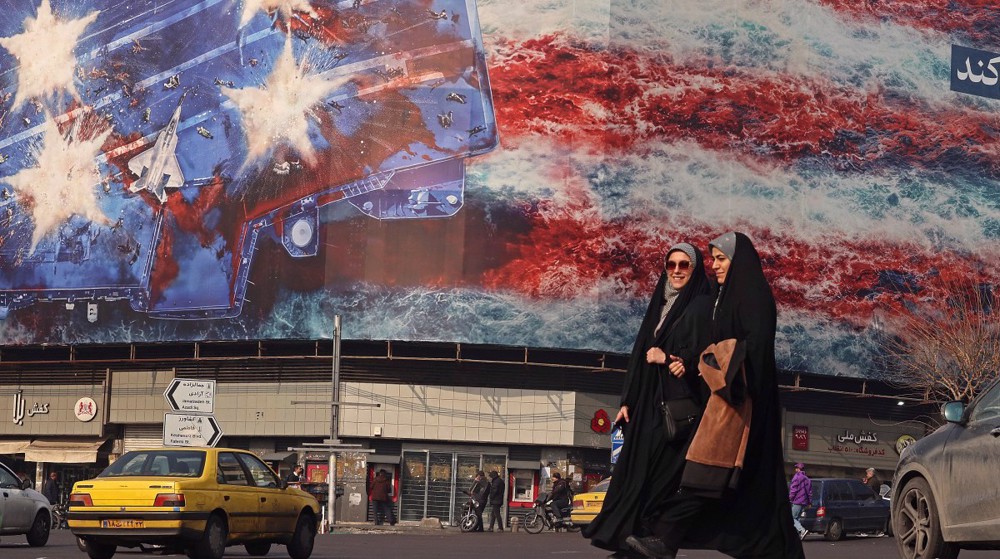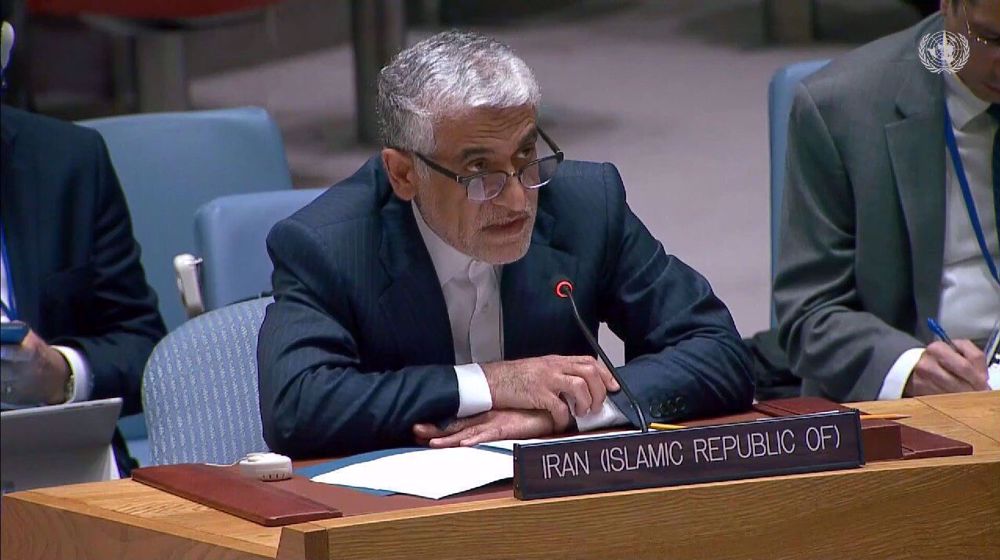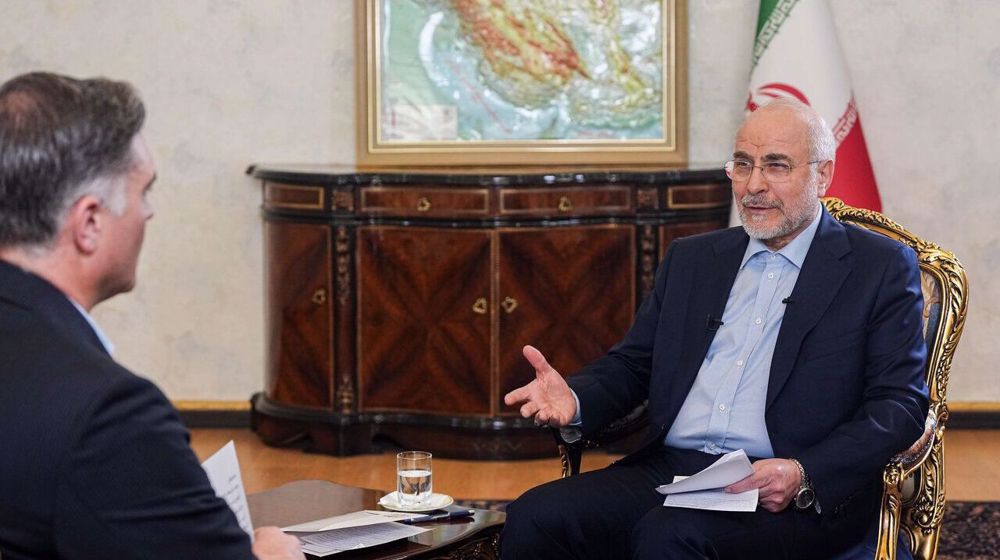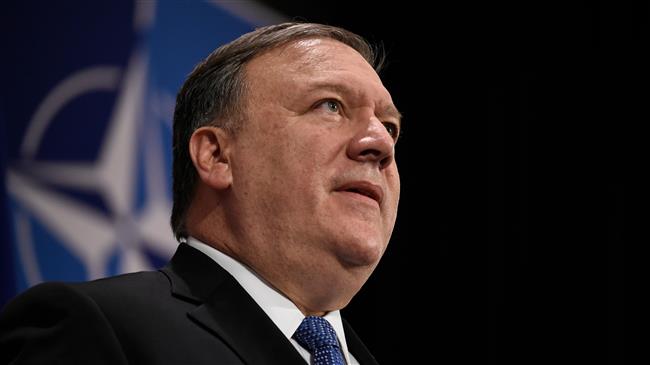Israeli PM Netanyahu playing baseless childish game: Araqchi
Iranian Deputy Foreign Minister Abbas Araqchi has said that Israeli Prime Minister Benjamin Netanyahu is playing a baseless childish, naive game.
"What we saw from Netanyahu was nothing but a childish and ridiculous show," Araqchi told Press TV on Monday, adding that it was also a repeat of Netanyahu's speeches in the past.
Earlier in the day Netanyahu delivered a televised address in which he accused Iran of violating the JCPOA. “That is just not an acceptable situation. They’re not sitting back idly. They’re setting off missiles, which they say are for television purposes. I don’t think so,” he said.
Netanyahu also alleged that Iran had intensified its efforts to hide its "secret files" and that it took them to a highly secret location in Tehran.
Araqchi added that such allegations against Tehran have already been proven wrong by the International Atomic Energy Agency (IAEA).
Read More:
- IAEA reaffirms Iran’s compliance with 2015 nuclear deal
- IAEA once again verifies Iran's compliance with nuclear deal
- Iran implementing nuclear-related commitments under JCPOA: IAEA
Araqchi also the Israeli PM is trying to affect US President Donald Trump's upcoming decision about the Joint Comprehensive Plan of Action (JCPOA.)
He further noted that Iran does not care about Netanyahu's allegations.
The deputy foreign minister also said that Tehran is prepared for any scenario caused by the US president regarding the future of JCPOA.
US still trawling through Netanyahu's documents
Also on Monday, US Secretary of State Mike Pompeo, until last week director of the CIA, claimed that Israel's newly released package of documents on an Iranian nuclear program was authentic and much of it was new to US experts, however adding that US translators and analysts are still trawling through the data.
Pompeo met Netanyahu on Sunday at the Israeli military headquarters and was briefed on the material, which was released as Washington's new top diplomat flew home.
"We've known about this material for a while and we certainly discussed this material yesterday when we were together," Pompeo told reporters on his plane. "It's been something that's been in the works for a while. I know that there are people talking about these documents not being authentic. I can confirm with you, for you, that these documents are real, they are authentic."
Intelligence experts and diplomats say Netanyahu has presented no "smoking gun," arguing that Netanyahu's documents are simply about a historic Iranian program and do not prove Tehran is in breach of the 2015 accord, although he may have helped make a case on behalf of hawks in the US administration who want to scrap the deal.
"It's accurate to say that the knowledge of that, the fact of that, has been known for quite some time, but there are thousands of new documents and new information," Pompeo added. "We're still going through it, there's still a lot of work to do to figure out the scope and scale of it, but it is the case that there is new information about that program."
Following Netanyahu's accusations, a spokesman for the British government said inspections by the IAEA are vital to ensure Iran's nuclear program is used for peaceful means.
"It remains a vitally important way of independently verifying that Iran is adhering to the deal and that Iran's nuclear program is exclusively peaceful," the spokesman said, adding, "We have never been naive about Iran and its nuclear intentions. That is why the IAEA inspection regime agreed as part of the Iran nuclear deal is one of the most extensive and robust in the history of international nuclear accords."
Since the JCPOA Implementation Day in January 2016, the IAEA has been monitoring Iran’s compliance with its nuclear-related commitments under the nuclear deal and has consistently verified the Islamic Republic’s compliance.
Iran and the five permanent members of the United Nations Security Council – the US, France, Britain, Russia and China – plus Germany signed the nuclear agreement on July 14, 2015 and started implementing it on January 16, 2016.
Under the JCPOA, Iran undertook to put limits on its nuclear program in exchange for the removal of nuclear-related sanctions imposed against Tehran.
Trump has repeatedly described the JCPOA, which was negotiated under his predecessor, Barack Obama, as “the worst and most one-sided transaction Washington has ever entered into,” a characterization he often used during his presidential campaign, and threatened to tear it up.
Trump has threatened to pull out of the JCPOA unless Congress and America's European allies help "fix" it with a follow-up agreement within a 120-day deadline.
Earlier, head of the Atomic Energy Organization of Iran (AEOI) Ali Akbar Salehi said the country has enough technical know-how to return to conditions it had before signing a nuclear deal with the P5+1 group of countries in 2015.
Rights groups in Australia call on authorities to arrest Israeli president
FIFA must strip US of 2026 World Cup hosting rights over Trump’s hawkish policies: Analyst
Iran Army slams EU’s blacklisting of IRGC as ‘shameful’, ‘irresponsible’
Iran considers armies of EU states as ‘terrorist organizations’: Security chief
Sharif University scholars condemn US foreign policy as illegal, destabilizing
Pezeshkian says Iran seeks no war, vows 'decisive' response to any attack
Iran ready for both war and dialogue, ‘will not accept dictation’: FM Araghchi
Trump warns UK against enhancing China ties as PM Starmer hails reset















 This makes it easy to access the Press TV website
This makes it easy to access the Press TV website